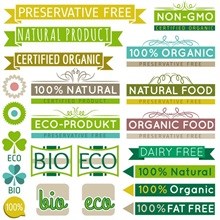
Related
Top stories






More news

Marketing & Media
Warner Bros. was “nice to have” but not at any price, says Netflix

Logistics & Transport
Maersk reroutes sailings around Africa amid Red Sea constraints

















Whilst many of the marketing criteria listed in Guidelines 13 and 14 reflect principles already enshrined in the ASA's Code of Advertising Practice, the Regulations will effectively translate these industry self-regulatory principles into legal ones (expanding on them in the process) and establish state jurisdiction over the affected marketing practices (transgressions will as such become criminal offences).
Although the draft regulations are predominantly aimed at the labelling of foods, marketers (including brands and their agencies) need to pay particularly close attention to them as it will become illegal to market goods in a misleading manner, or to make assertions, declarations or claims about foods or beverages which do not comply with the rigorous requirements laid down.
The regulations and guidelines span more than 250 pages, which makes summarising them a challenge and the IAB has accordingly limited its focus in this communication to those topics, which it believes are of particular interest for marketers and its members.
The above is not intended to be an exhaustive summary of the regulations or guidelines, and members are urged to read them and consider the impact for their particular businesses and contexts.
The closing date for submissions to the Department of Health on the Draft Regulations and Guidelines is 29 August 2014.
The IAB would also encourage members to seek legal advice where they believe they are particularly vulnerable or exposed.
Members are encouraged to make submissions on their own behalf directly to the Department, although the IAB is currently in discussions with other industry bodies (including the ACA) and representatives relating to further potential combined and/or individual submissions.
In the interim, members are invited to forward specific concerns to the IAB (identifying the particular regulation or guidelines, together with a supporting rationale underlying the concern) for consideration as part of these broader discussions. Please ensure that all such concerns are sent by email by no later than Friday 22 August 2014.
Should any members be independently considering the regulations and formulating positions, submissions or opinions of their own, the IAB would be grateful for the support and assistance in its efforts. Likewise, it would be very grateful if its larger members could reach out to their in-house legal departments to assist it.